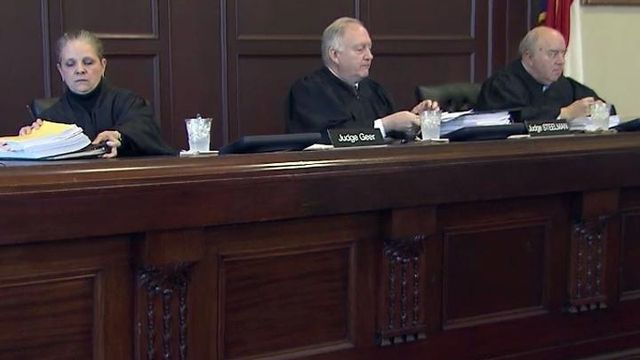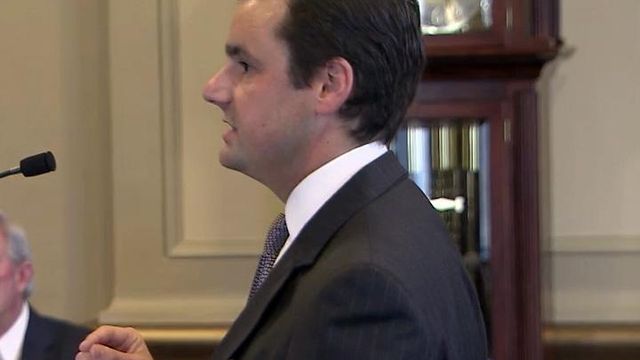Attorneys for ousted Durham DA argue removal violated her rights
Lawyers for former Durham County District Attorney Tracey Cline said Wednesday that the state law used to remove her from office last year is unconstitutional.
Posted — UpdatedCline lost her job last March after she repeatedly accused Superior Court Judge Orlando Hudson of being corrupt and biased against her and asked to have him barred from handling criminal cases in Durham County.
In the lengthy motions, she said Hudson had "the reprobate mind of a monarch," said his conduct involved "moral turpitude, dishonesty and corruption," that his actions "raped" crime victims and "kidnapped the rights of victims and their families" and that his only goal was "to demean the district attorney at all costs."
Other Superior Court judges found her complaints to be groundless, and Superior Court Judge Robert Hobgood ruled after a hearing that the allegations had damaged the Durham County justice system and removed her from office.
Attorney Patrick Mincey told a three-judge panel of the North Carolina Court of Appeals that the statute allowing for district attorneys to be removed from office violates Cline's due process rights because it required Hobgood to hold a hearing within 30 days of a complaint being filed.
"For Ms. Cline or for any other district attorney in the state of North Carolina, this statute does not afford the minimum level, the minimum protections of due process that our federal Constitution requires," Mincey said.
Appellate judges Robert Hunter and Martha Geer questioned what rights Cline was denied, noting that she had a hearing and was able to challenge the evidence against her and call witnesses to bolster her case.
Cline didn't attend the hearing.
Mincey also argued that Cline's statements are protected under the First Amendment, saying she had a basis for making them because she believed Hudson was hindering her ability to prosecute cases.
"This was not speech based on Tracey Cline's imagination but it was, in fact, founded and grounded in a year of observation," he said.
The judges asked why Cline filed motions challenging Hudson instead of simply appealing his rulings.
"Speaking out is one thing," Geer said, "but that's not what we're talking about. .... We're talking about fairly extreme language."
"Corruption is a very serious charge for a sitting judge," Hunter said.
Mincey said Cline had no alternative – although she had filed a complaint against Hudson with the Judicial Standards Commission.
"There's no doubt Tracey wanted to resolve issues peaceably with Judge Hudson, but when it came to choosing peace or injustice, she wouldn't be the one person who would not side with justice," he said.
The state Judicial Standards Commission in September cleared Hudson of the allegations raised by Cline.
Burton Craige, a Wake County attorney appointed to argue that Hobgood's order be upheld, said Cline had been repeatedly warned about filing motions with baseless accusations.
"The only record against her is her own words," Craige said. "There's been no showing of prejudice. ... There was ample procedural due process."
He also urged the panel to draw the line on preventing public attacks on judges' character.
"If this barrage of false accusations against Judge Hudson is acceptable, what would not be acceptable?" he asked.
The Court of Appeals usually takes about three months to issue its rulings.
A disciplinary hearing in front of the North Carolina State Bar is on hold pending the Court of Appeals ruling.
The bar's disciplinary hearing, which was originally scheduled for last October, will rule on a complaint against Cline alleging she committed five violations of rules requiring lawyers to be honest and trustworthy.
It's not clear what punishment Cline might face.
• Credits
Copyright 2024 by WRAL.com and the Associated Press. All rights reserved. This material may not be published, broadcast, rewritten or redistributed.






